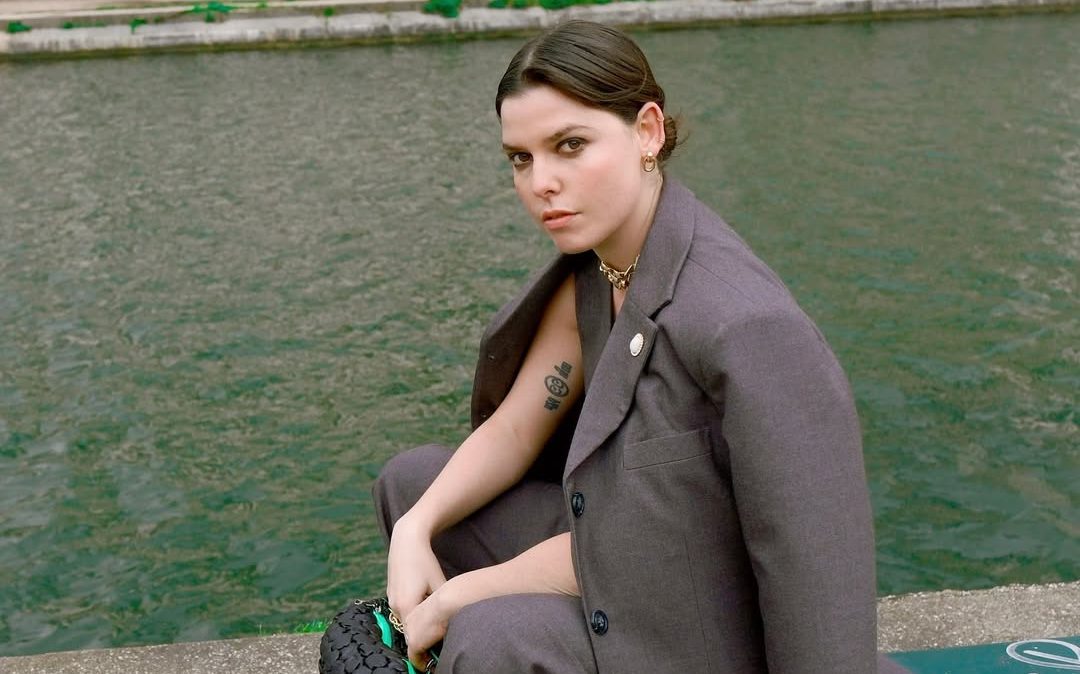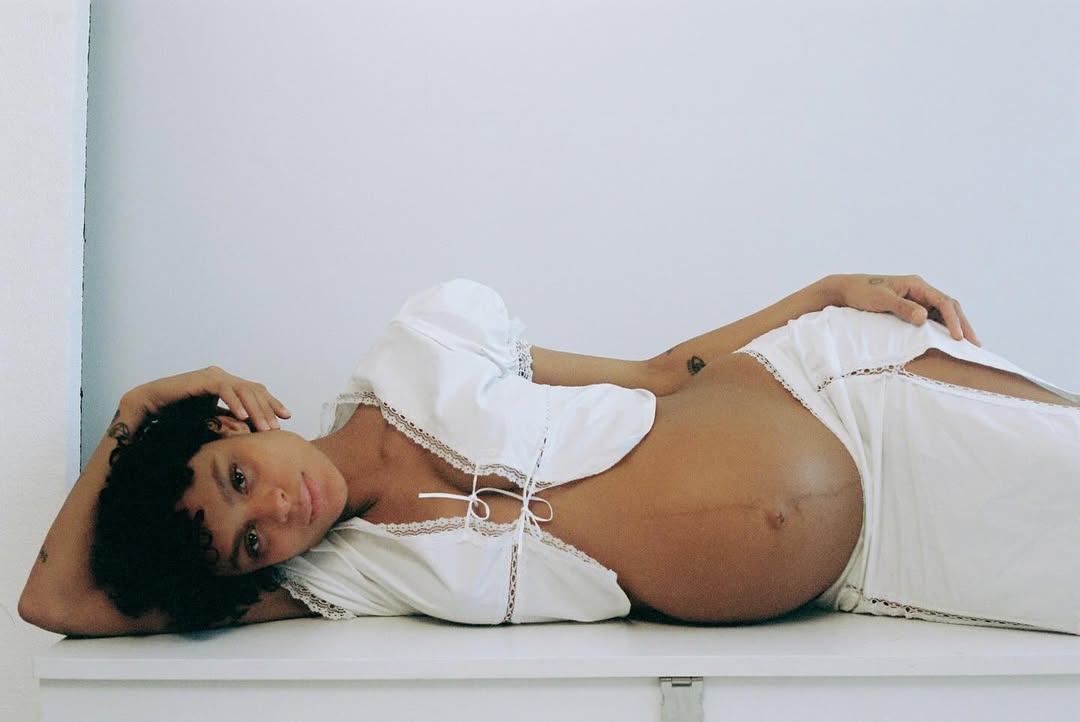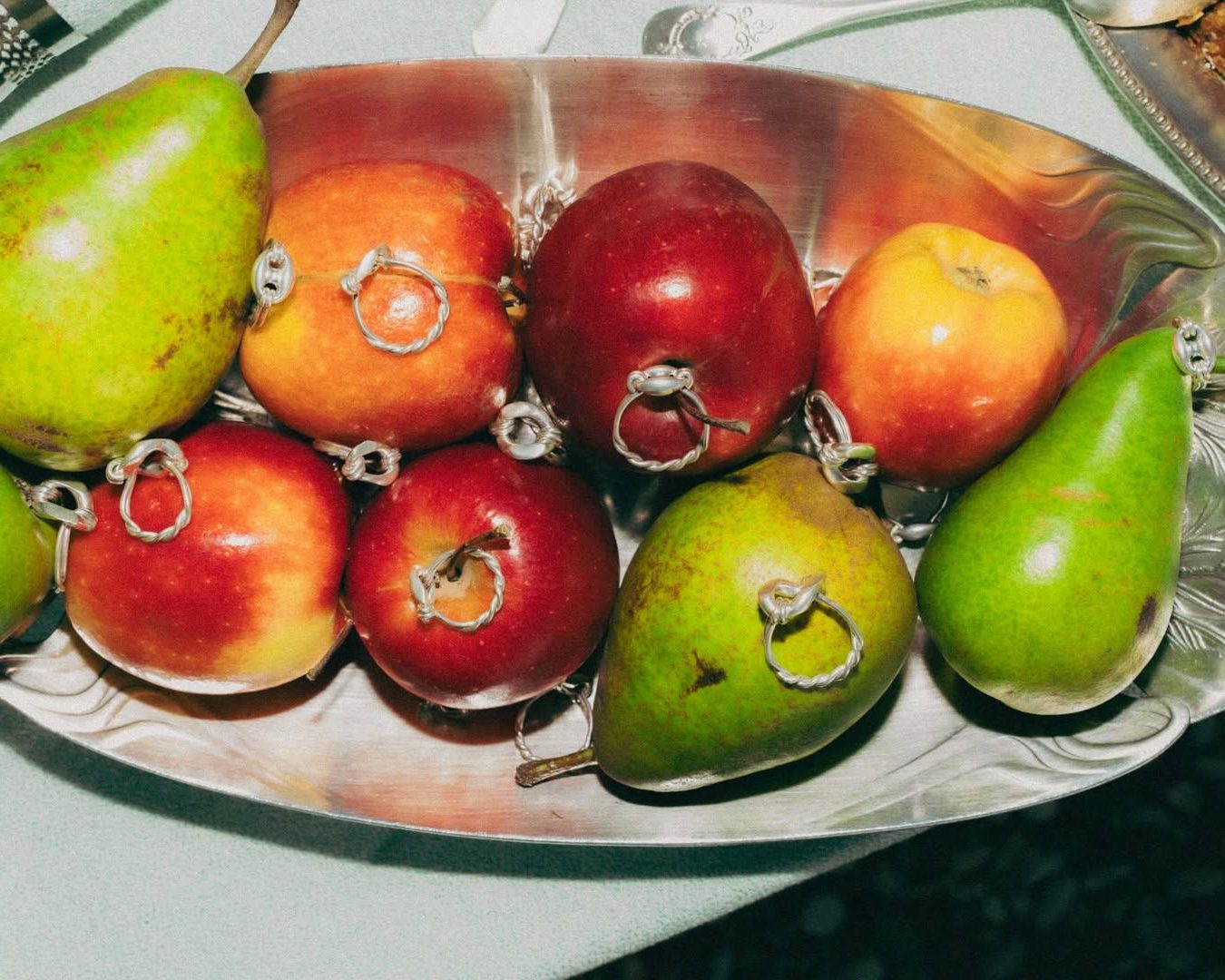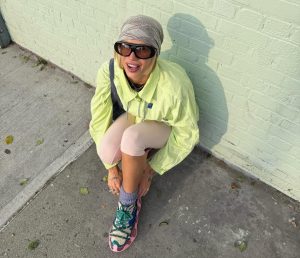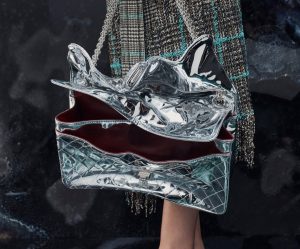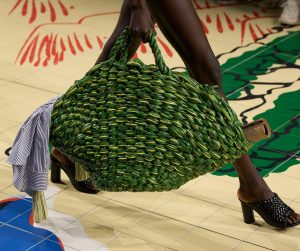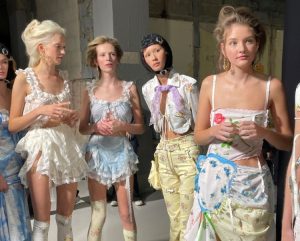It’s in Marseille, just steps from the Old Port, that Sneaker Spirit met with Léa Germano, founder of Studio Paillette, just hours before the fashion show she’s co-organizing with Maison Salé at the Mucem. She welcomes us into her world, where every accessory is carefully selected, every look has been created as a narrative. In this creative hive where ideas flow as freely as clothes, time seems to stand still. Behind the scenes of Marseille’s Slow Fashion Week, the hustle gives way to a gentle, almost ritual-like focus, the kind that precedes big moments.
From luxury to circular fashion
A trained stylist, Léa spent years working in the world of luxury from Marc Jacobs in New York to Balmain in Paris. But she quickly felt the urge to step away from that model and offer a more inclusive and above all, more sustainable alternative. In 2020, she launched Studio Paillette: a clothing rental service designed to be accessible to everyone. It later evolved into two branches, a showroom and a creative agency. Today, Studio Paillette partners with brands, produces content, and boosts the visibility of emerging labels through rentals, without resorting to traditional gifting strategies. It’s a new form of influence, free from the usual codes, where each piece of clothing travels and tells its story through every rental.
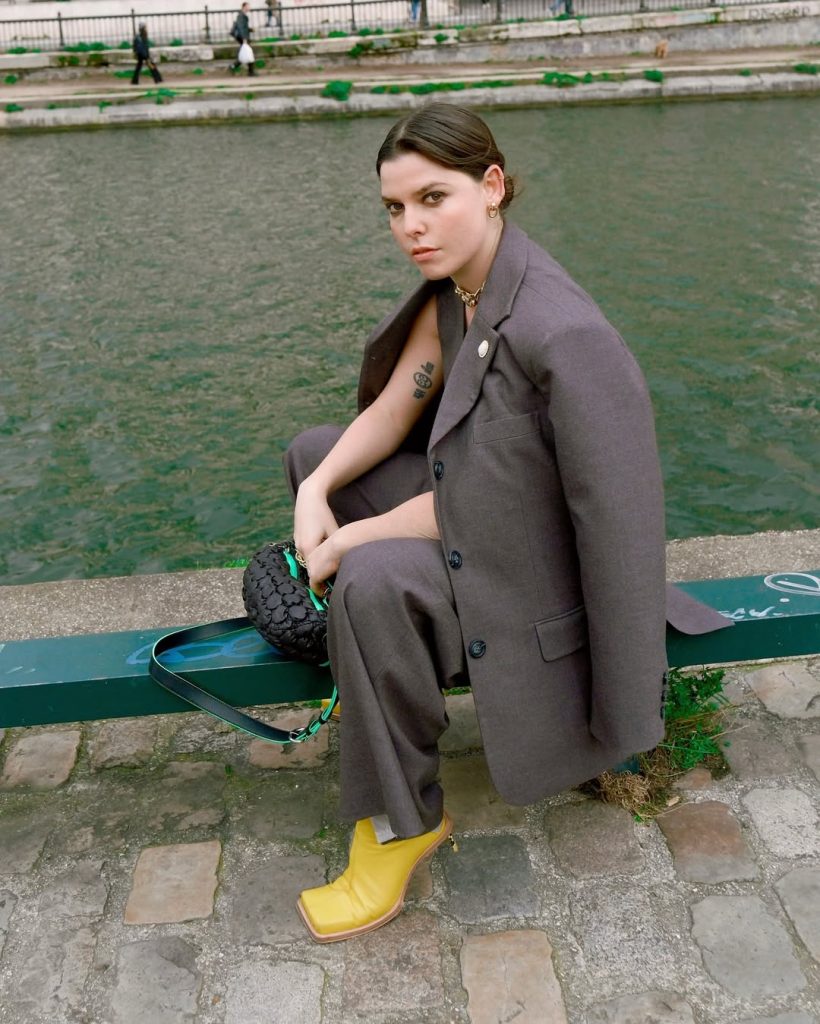
“My role isn’t to create products, but to create looks,” Léa sums up. Studio Paillette is both a website and a showroom where each piece is the result of a sharp, thoughtful curation. Emerging designers sit alongside more established labels like Ganni, Essentiel Antwerp, and AMI, all drawn to the promise of alternative visibility that aligns with a sustainable approach.
Marseille, a new playground for expression
Though based in Paris, Studio Paillette delivers across France. But it’s in Marseille that Léa is exploring a new dimension of the project during the first edition of Slow Fashion Week. Teaming up with Lucie, founder of the brand Salé and co-founder of the BAGA collective, she’s organizing a new kind of runway show on Friday, June 13, one where the goal isn’t to sell pieces, but to celebrate creativity. The looks were built using Salé’s upcycled wardrobe, playing with bold layering and unexpected pairings to unlock each silhouette’s full potential. A statement show, free from commercial pressures, where every outfit tells a story. More than a showcase, it’s a celebration of collective creation, textile reinvention, and circular fashion as a meaningful, committed act.
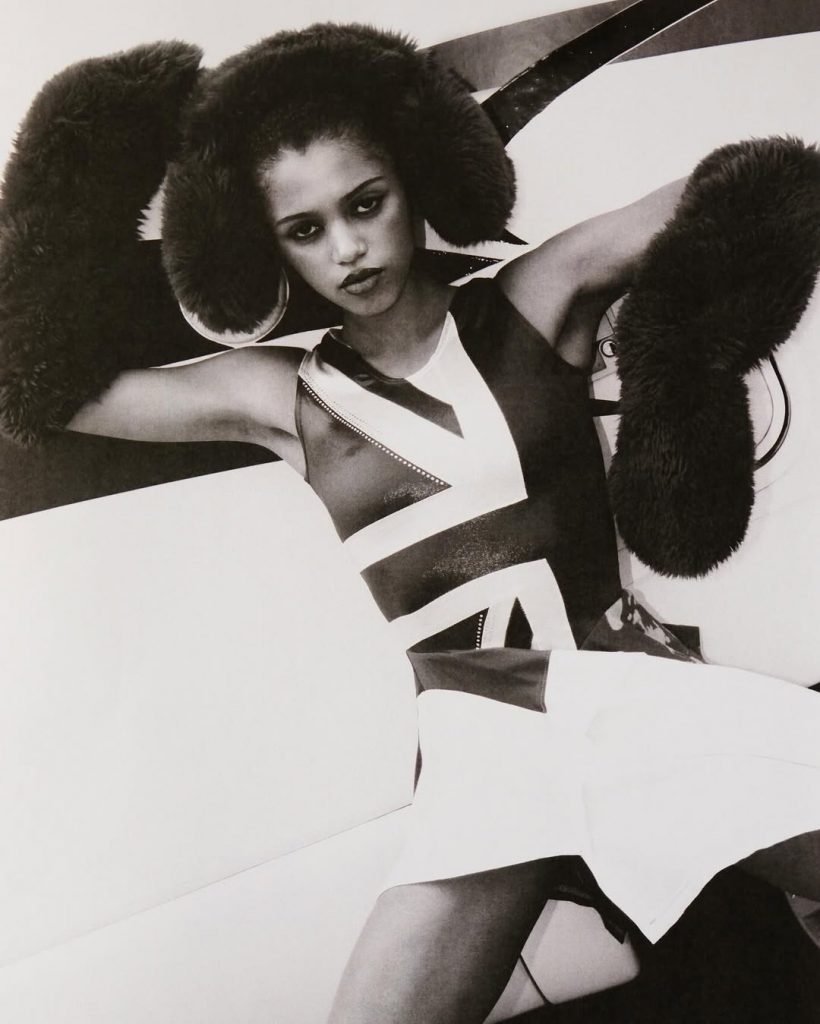
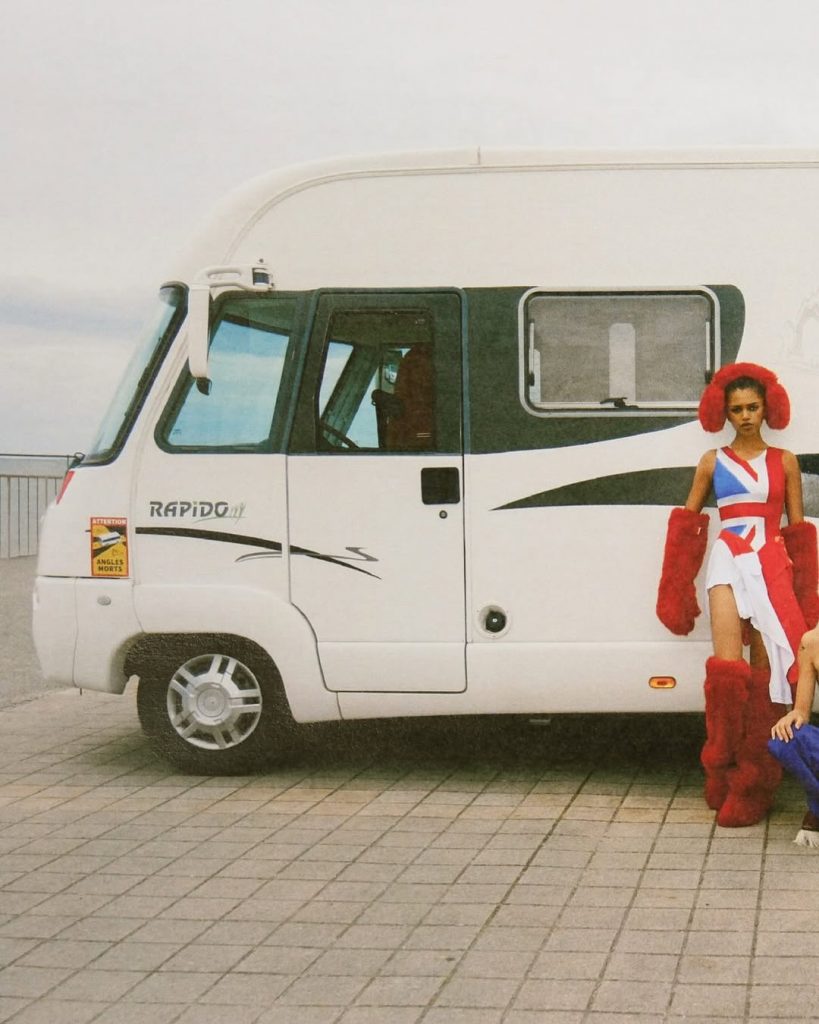
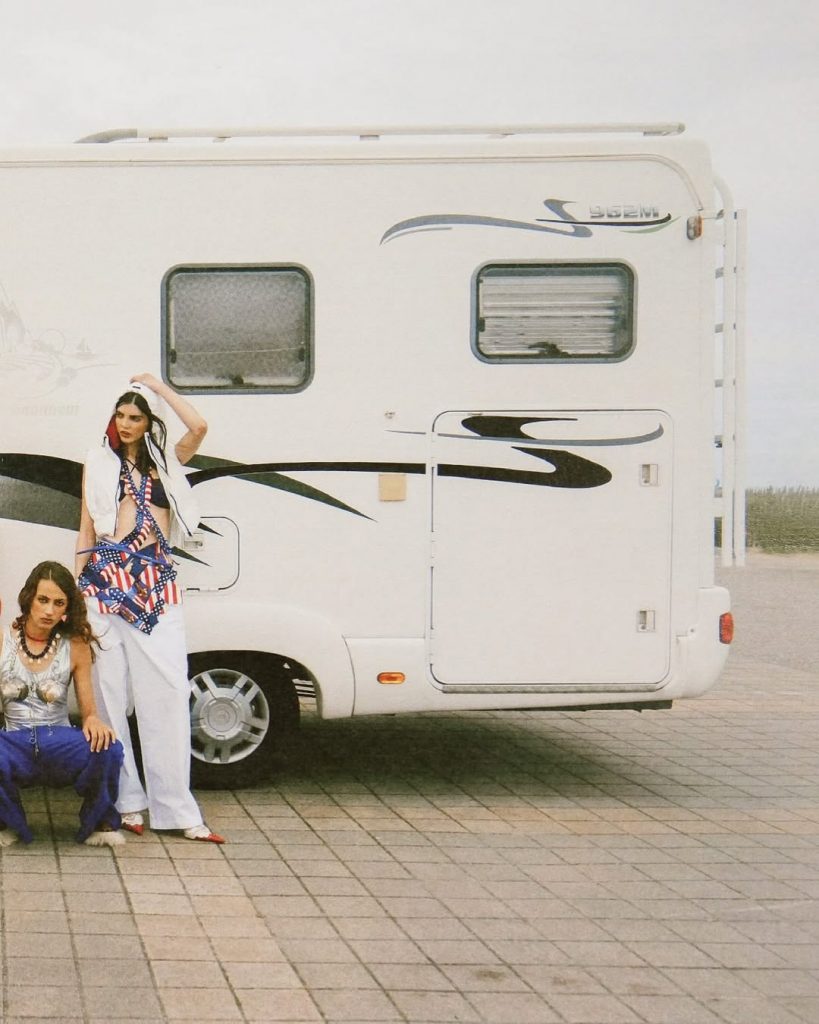
This local approach is anything but a step back. Quite the opposite: “Marseille has incredible creative potential. There needed to be a space for local designers, but also a way to bring in talent from elsewhere,” says Léa. By inviting artists and stylists from Paris and other cities (by train, she adds with a laugh), Slow Fashion Week is catalyzing a new scene, one that’s both rooted and open, eco-conscious and inclusive.
Behind the scenes of clothing rental
Clothing rental remains the cornerstone of the project, even though Léa admits the model is not yet widely adopted or fully profitable. “It’s a logistics business,” she explains. To further professionalize the service, Studio Paillette secured funding to develop a product tracking tool and ease the cleaning process: a crucial step toward a more mindful and efficient approach to rental.
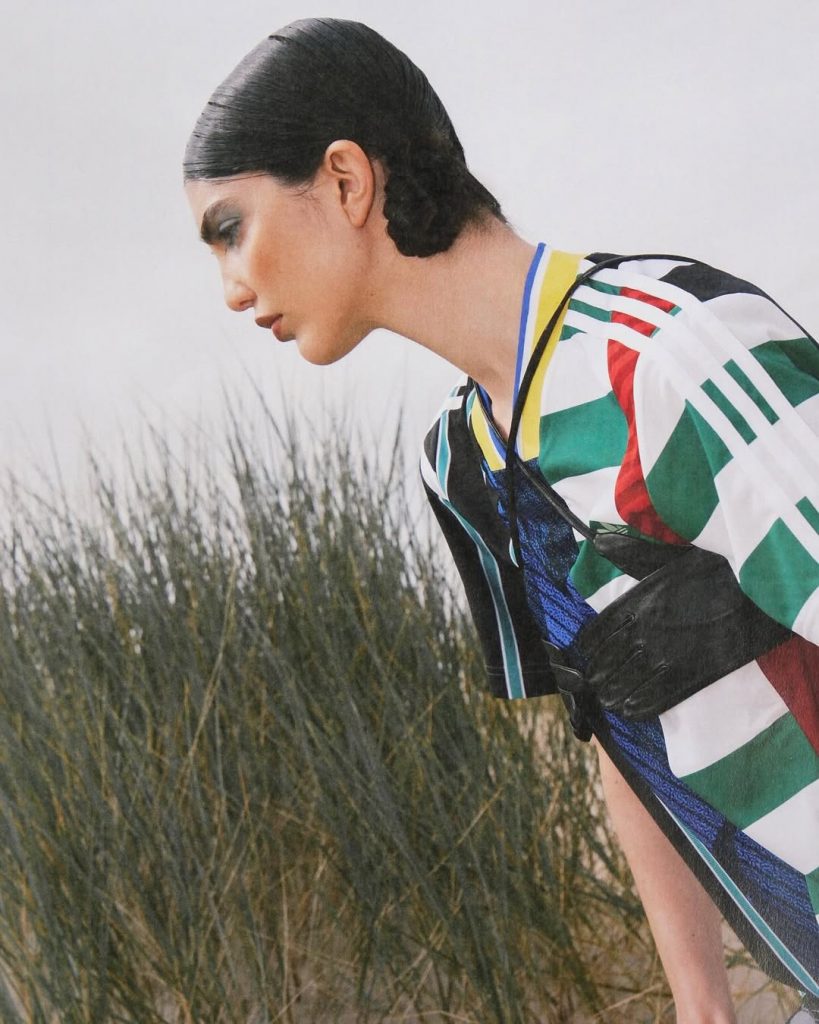
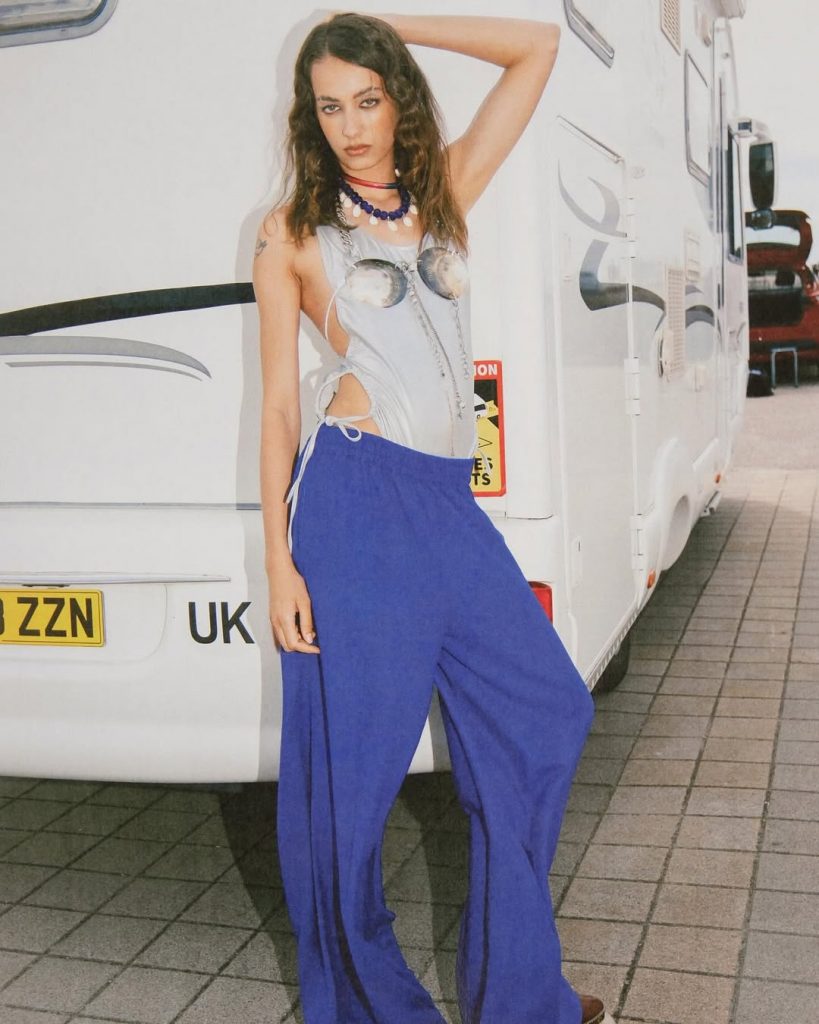
One of Léa’s key missions: promoting monthly rentals, a deliberate choice to rethink how we consume fashion. “A statement piece can be worn every day for a month. Or, on the flip side, rented just for one occasion. And once you’ve had your moment with it, it becomes someone else’s treasure.” At Studio Paillette, 70% of clients return after their first rental experience. But taking that first step can still be daunting. Many wait for a last-minute emergency, the day before a wedding or event, before walking through the doors of the Paris showroom, located at La Caserne.
A network in motion
This winter, Léa travelled to Copenhagen, London, Milan, and New York to meet emerging brands and potential clients. In Copenhagen, she discovered a different way of doing things: small-scale, human-sized trade shows like CIFF. At these events, she follows her instincts and with her creative background, it’s always the product that speaks first. She touches, observes, and if there’s a spark, she starts a conversation with the brand to explore a potential collaboration. Some brands, in fact, are now looking to distribute almost exclusively through rental.
Around Studio Paillette, a broader network is taking shape. Other projects and new dynamics are emerging all over, driven by a shared desire to reinvent fashion. “What we’re building together is a fabric,” Léa says.
Article by Julie Boone.


